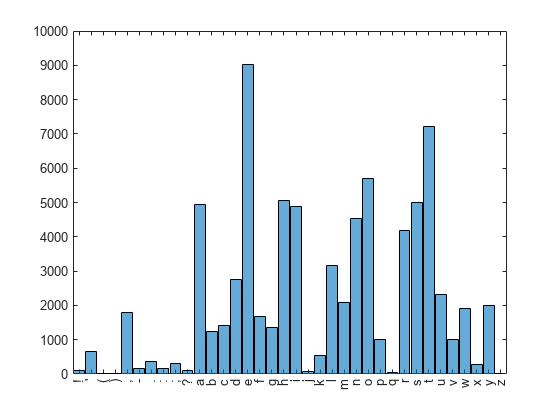wildcardPattern
Matches as few characters of any type
Syntax
Description
pat = wildcardPatternwildcardPattern is lazy, meaning that if used on
its own without any inputs it matches empty strings ("") before or after
characters in strings.
pat = wildcardPattern(minCharacters,maxCharacters)minCharacters and no more than
maxCharacters. inf is a valid value for
maxCharacters. wildcardPattern matches a quantity of
characters as close to minCharacters as possible.
Examples
Input Arguments
Output Arguments
Extended Capabilities
Version History
Introduced in R2020b
